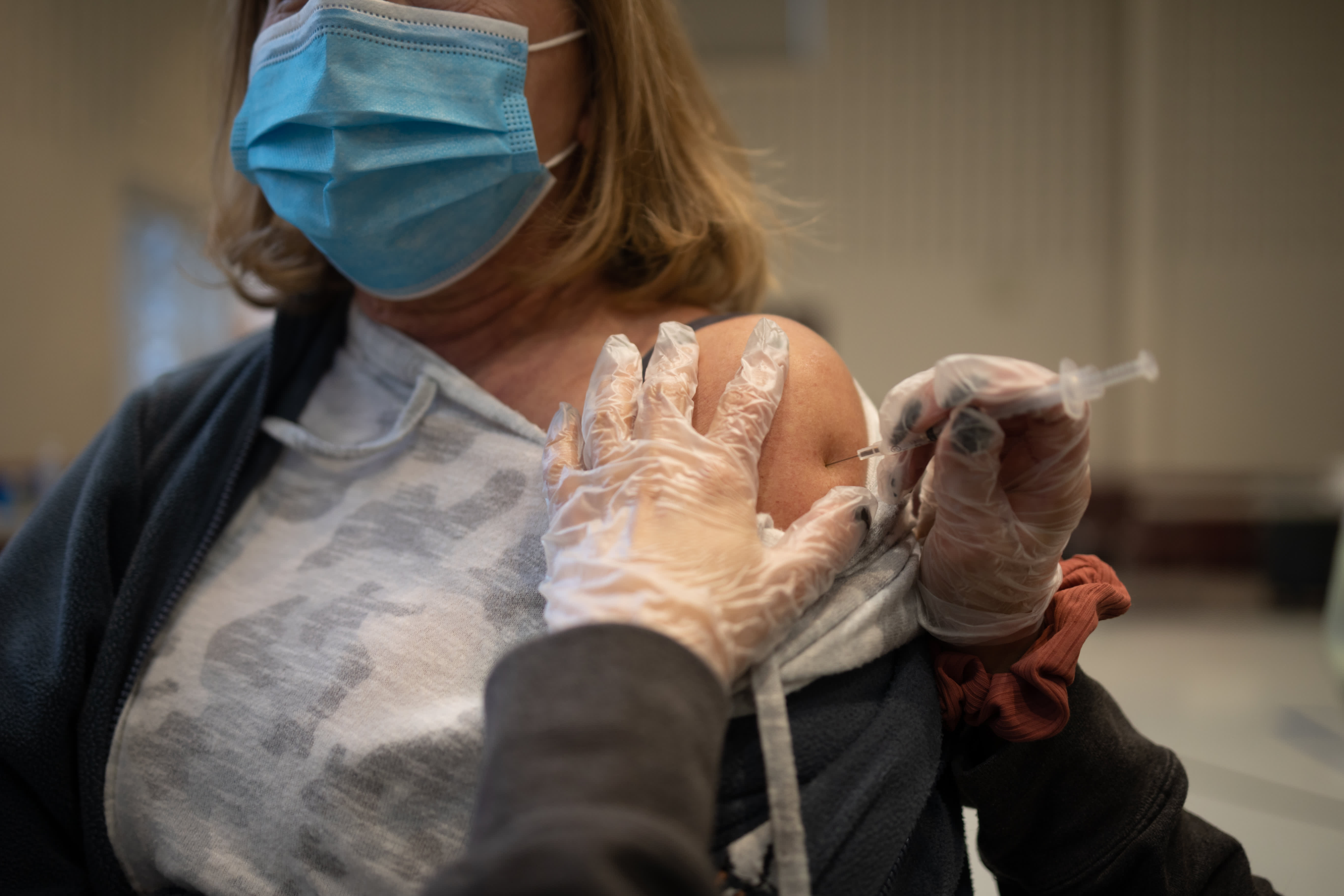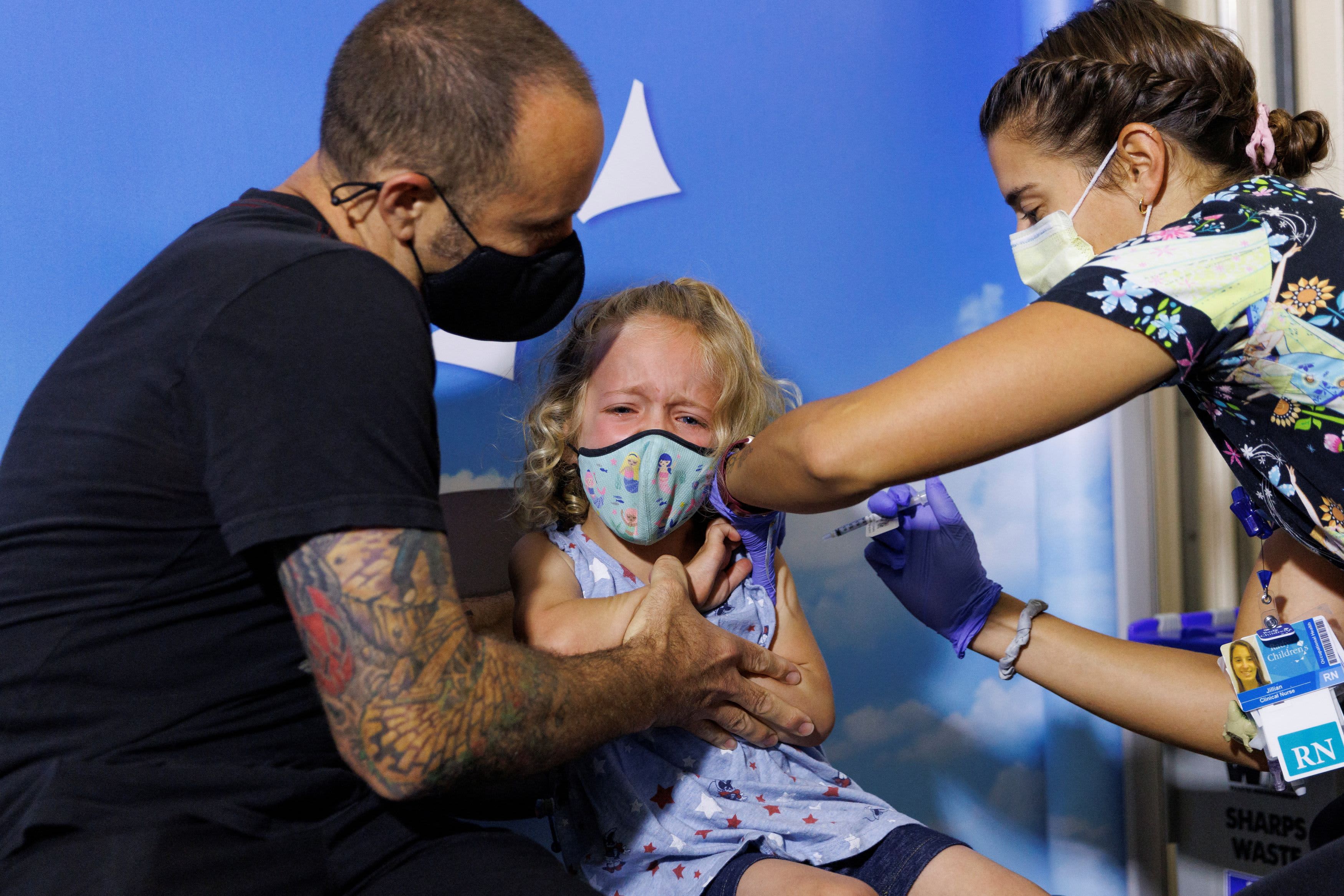While BA.5 continues to be the dominant COVID variant in the U.S., two newer variants are still gaining ground.
The signs of a potential shift come as masking guidance appears to change for health care facilities in the U.S.
Here's what you need to know about the coronavirus pandemic across Illinois today:
COVID Variant Tracker Shows BA.4.6, BF.7 on the Rise as BA.5 Cases Slowly Decrease
Feeling out of the loop? We'll catch you up on the Chicago news you need to know. Sign up for the weekly Chicago Catch-Up newsletter here.
The BA.5 omicron subvariant still accounts for more than 4-in-5 COVID cases in the U.S., but two new subvariants have continued to gain ground in recent weeks.
According to the latest estimates from the Centers for Disease Control and Prevention, the BA.5 omicron subvariant still is responsible for 83.1% of COVID cases in the United States as of Tuesday.
Even though that makes it by far the most dominant variant of the virus currently circulating in the United States, it also represents a continued decrease in that dominance as two other omicron subvariants emerge.
Read more here.
CDC's Updated Hospital Masking Guidance May Not Be What You Think, as Top Doc Explains
News that the Centers for Disease Control and Prevention had changed its masking guidelines for health care settings has been headlines this week, but how exactly has it changed?
Chicago's top doctor said the answer is more complex than many may know.
Read more here.
Signs of COVID vs. Flu: Chicago's Top Doctor Says Only One Way to Know the Difference
With temperatures steadily cooling down and the beginning of flu season quickly approaching, health experts are anticipating a rise in cases of both the flu and COVID-19.
While flu season has not "started in any kind of serious way" yet, according to Chicago's top doctor Allison Arwady, health experts are warning residents of the symptoms of both the flu and COVID-19 while encouraging vaccination for both.
Read more here.
Having Trouble Getting Moderna's New COVID Booster Shot? Here's Why and When That Could Change
After reports of shortages involving Moderna's updated COVID-19 booster shot, additional doses have begun to arrive at pharmacies nationwide, and more are expected soon.
The Food and Drug Administration said last week it authorized the release of 10 additional shipments, with each said to contain millions of doses of Moderna's bivalent booster. The CDC signed off on updated versions of Pfizer’s and Moderna’s booster shots on Sept. 1, and pharmacies and other vaccination sites began administering the new shots around Labor Day weekend.
Read more here.
Chicago's Top Doctor is Waiting to Get the New COVID Booster Shot, But Says Not Everyone Should
With COVID cases anticipated to rise again as fall gets underway, health officials widely encourage those eligible to get the recently-updated "bivalent" booster shot as soon as possible.
Containing half the original vaccine recipe and half protection against the newest omicron versions, the boosters are said to offer better protection than those previously administered. As the winter months inch closer, Dr. Allison Arwady, commissioner of the Chicago Department of Public Health, has advised residents to not wait when it comes to getting vaccinated and boosted.
Read more here.
Where to Get Updated COVID Booster, Eligibility, Possible Side Effects and More
For the vast majority of the pandemic, up until early September, COVID-19 vaccines targeted the original coronavirus strain, even as wildly different mutants emerged. Vaccines continued to show effective protection, even regarding different strains, and now, experts hope the newest shots can go even further and provide additional protection.
Known as "bivalent" vaccines, the updated doses contain half the original vaccine recipe and half protection against the newest omicron versions, BA.4 and BA.5.
Read more here.
Chicago, Cook County Move From ‘Medium' to ‘Low' COVID Community Level
Following improvements in COVID-19 case rates and hospitalizations, both Chicago and Cook County have shifted from a "medium" to "low" COVID community level status for the first time in months, according to health officials.
As of Friday, all Chicago-area counties in Illinois are listed at "low" community level status, a marked improvement from weeks earlier, according to the latest update from the Centers for Disease Control and Prevention.
Read more here.
Coronavirus in Illinois: 17K New Cases, 62 Deaths Reported in Last Week
Illinois health officials reported 17,373 new COVID-19 cases over the past week, along with 62 additional deaths, marking a decrease in cases from a week prior, as three counties within the state remain at a "high" community level for COVID-19.
The previous week, Illinois reported 17,584 new cases and 74 deaths. The week before that, 19,933 new cases and 64 deaths were reported.
More Illinois COVID data stats here.
Chicago's Top Doctor Points to Signs of Change in COVID Variants Heading Into Fall
Chicago's top doctor pointed to what could be the start of a change in COVID variants circulating in the U.S. and Midwest this week.
"We are starting to see a little bit of a change here," Chicago Department of Public Health Commissioner Dr. Allison Arwady said during a Facebook Live Tuesday, pointing specifically to changes in the BA.2.75 and a new BF.7 variant.
Read more here.
Here Are the COVID-19 Variants Being Tracked by the CDC, Including New BF.7
A new COVID-19 variant growing in numbers as the BA.5 omicron subvariant begins to decline is one of several variants currently being tracked by the Centers for Disease Control and Prevention heading into fall and winter, as experts watch for a mutation that could cause yet another surge in the pandemic.
While the omicron subvariant BA.5 has been the dominant strain of COVID in the United States for several months, there are at least four other subvariants starting to gain ground in recent weeks.
Read more here.
How Soon After Having COVID Can You Get the New COVID Vaccine Booster Shots?
If you recently had COVID-19, when is the best time to get the new omicron-specific booster shot?
According to federal officials, there are no restrictions for getting the booster around a recent COVID infection. Anyone who has received a primary COVID vaccine is eligible two months from their last dose of either the original vaccines or the previous booster shots.
But Chicago's top doctor, who recently recovered from COVID herself, said while there is no requirement to wait, some people might consider postponing their latest dose if they've been recently infected.



